Dear all,
We would like to start by wishing you all the best for 2021! Hopefully the new year will afford more possibilities to meet up and see each other face to face. We will have to be patient because we are starting the year in an increasingly strict lockdown. We decided in December to that the two DISC courses starting in January will be offered online. If the situation allows it we may decide to organize the last two lectures in Utrecht but that remains to be seen.
In June we organising the DISC Summer School. It will be largely online, but the organisers are also looking into options to organize at least one day on location.
Together with UCLouvain we are also planning to organize a Benelux Workshop for PhD students on June 29, at De Doelen in Rotterdam. We would very much like to give them the opportunity to meet each other and present their work.
With best regards,
Henk Nijmeijer,
scientific director
Martha Otte,
DISC secretariat
In January the following courses will start:
Mathematical Models of Systems (ONLINE)
J. Polderman
H. Trentelman
S. Trenn
Nonlinear Control Systems (ONLINE)
B. Jayawardhana
B. Besselink
For the full list of courses offered in 2020-2021 click here
The topic of the DISC Summer School 2021 is “”Planning, Learning and Control for Multi-Robot and Multi-Agent Systems”. The Summer School will take place in the week of June 7, 2021 and will be offered largely online. The organisers, Javier Alonso Mora, Ming Cao and Omur Arslan, are adapting the program to an online format and are also exploring options to organize at least one day on location.
Multi-robot and Multi-agent Systems
In the (near) future fleets of autonomous cars will coordinate to provide on-demand transportation while making our roads safer; mobile robots will coordinate in manufacturing and logistic processes; and teams of aerial robots will provide automated inspection and surveillance. These applications require novel methods and theoretical developments in the systems and control field that account for the interaction and coordination with other agents in complex environments.
In this summer school, we will present recent developments towards the endeavour of pervasive multi-robot and multi-agent systems. The lectures and tutorials will cover the concepts of communication-based coordination (consensus, distributed optimization and formation control), interaction (decision-making in multi-agent systems), motion planning and learning. The lectures contain both recent control theoretical development, as well as, application within the robotics field. Additional, we are hoping that this summer school will serve to partially bridge the gap between controls and AI research for multi-robot and multi-agent systems.
Lecturers
The main program will consist of a number of international and national speakers. The following lecturers have already confirmed:
Complemented by talks given by DISC lecturers:
Credits
More information about the credits will be available later
Fee
The registration fees will be determined later
European Control Conference 2021 (https://ecc21.euca-ecc.org/)
June 29-July 2, 2021
Submission deadlines
November 25, 2020 (papers, invited session proposals and invited papers)
December 21, 2020 (workshop proposals & tutorial sessions)
January 30, 2021 (extended abstracts)
We are proud to announce the following plenary speakers:
General chair
Henk Nijmeijer (Eindhoven University of Technology)
IPC-Chairs
Jacquelien Scherpen (University of Groningen)
Maurice Heemels (Eindhoven University of Technology)
NOC Chair
Hans Hellendoorn (Delft University of Technology)
ECC 2021 is organised in cooperation with: EUCA, IFAC and IEEE Control Systems Society
The accepted papers will be indexed and published on the IEEE Xplore digital library. We are also working towards a stronger link with the European Journal of Control for publication of selected papers of the conference.
We look forward to welcoming you to the ECC 2021!
Due to COVID-19, the 40th Benelux Meeting on Systems and Control, which was supposed to take place in March 2021, has been canceled. However, to facilitate the possibility for (especially 1st and 2nd year) PhD students from the Benelux to meet, discuss, and present their work to fellow PhD students, we decided to organise a one-day Benelux Workshop on-site in Rotterdam at the location of the European Control Conference 2021, at Tuesday June 29, 2021.
All PhD students will receive a mailing with more information shortly!
 Professor Hans Hellendoorn has been appointed as Pro Vice Rector Magnificus for Joint Educational Affairs (PVR JEA) at Delft University of Technology with effect from 1 February 2021. Education at the TU Delft is becoming increasingly interfaculty in nature. The expectation is that the share of interfaculty and interuniversity education will increase further, and that calls for a different type of management. In his new role as PVR JEA, Hans Hellendoorn will lead these activities and develop them further in cooperation with the various stakeholders. He will also act as a first point of contact for educational cooperation and coordination with the universities of applied sciences (hbo).
Professor Hans Hellendoorn has been appointed as Pro Vice Rector Magnificus for Joint Educational Affairs (PVR JEA) at Delft University of Technology with effect from 1 February 2021. Education at the TU Delft is becoming increasingly interfaculty in nature. The expectation is that the share of interfaculty and interuniversity education will increase further, and that calls for a different type of management. In his new role as PVR JEA, Hans Hellendoorn will lead these activities and develop them further in cooperation with the various stakeholders. He will also act as a first point of contact for educational cooperation and coordination with the universities of applied sciences (hbo).
The appointment as PVR JEA is initially for four years. Hellendoorn will combine this role with being department chair of Cognitive Robotics.
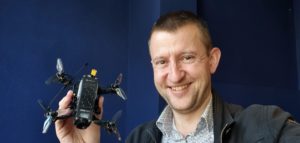 Dr Coen de Visser has been awarded a VIDI grant. He receives the VIDI for his research into the forecasting of safe operating envelopes for autonomous robots. “Robots will play an important role in our daily lives in the near future, but only if they are safe enough. I want to develop a new system that will give robots an awareness of their physical limitations, even after failure. This will allow robots to safely recover from dangerous situations,’ says De Visser about his research.
Dr Coen de Visser has been awarded a VIDI grant. He receives the VIDI for his research into the forecasting of safe operating envelopes for autonomous robots. “Robots will play an important role in our daily lives in the near future, but only if they are safe enough. I want to develop a new system that will give robots an awareness of their physical limitations, even after failure. This will allow robots to safely recover from dangerous situations,’ says De Visser about his research.
Click here for more information
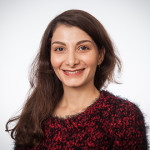 Dr. Anahita Jamshidnejad has been awarded a VENI grant. “In this project, I will develop mathematical decision-making approaches for optimal performance in uncertain situations. The developed approaches will be implemented to search-and-rescue drones, which will take over tasks that are dangerous for firefighters. Real-time optimization and autonomous decision-making in presence of uncertainties are open challenges of search-and-rescue drones, which I will address by developing mission-planning systems based on an innovative integration of stochastic optimal control and artificial intelligence”.
Dr. Anahita Jamshidnejad has been awarded a VENI grant. “In this project, I will develop mathematical decision-making approaches for optimal performance in uncertain situations. The developed approaches will be implemented to search-and-rescue drones, which will take over tasks that are dangerous for firefighters. Real-time optimization and autonomous decision-making in presence of uncertainties are open challenges of search-and-rescue drones, which I will address by developing mission-planning systems based on an innovative integration of stochastic optimal control and artificial intelligence”.
 The Institute of Electrical and Electronics Engineers (IEEE) has elevated Professor Nathan van de Wouw to IEEE Fellow as of 1 January 2021. Becoming an IEEE Fellow is IEEE’s highest honor. Nathan van de Wouw, full professor at the Dynamics and Control group of the Mechanical Engineering Department, received this honor because of his contributions to hybrid, data-based and networked control.
The Institute of Electrical and Electronics Engineers (IEEE) has elevated Professor Nathan van de Wouw to IEEE Fellow as of 1 January 2021. Becoming an IEEE Fellow is IEEE’s highest honor. Nathan van de Wouw, full professor at the Dynamics and Control group of the Mechanical Engineering Department, received this honor because of his contributions to hybrid, data-based and networked control.
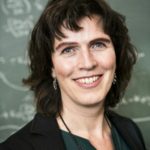 The Institute of Electrical and Electronics Engineers (IEEE) has elevated Prof. Jacquelien Scherpen of the Engineering and Technology institute Groningen (ENTEG) to the grade of IEEE Fellow for her contributions to nonlinear model reduction and passivity-based control. The Fellow title is recognized by the international engineering community as a prestigious honour and achievement.
The Institute of Electrical and Electronics Engineers (IEEE) has elevated Prof. Jacquelien Scherpen of the Engineering and Technology institute Groningen (ENTEG) to the grade of IEEE Fellow for her contributions to nonlinear model reduction and passivity-based control. The Fellow title is recognized by the international engineering community as a prestigious honour and achievement.
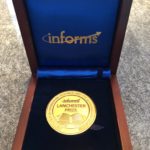 The 2020 Frederick W. Lanchester Prize was awarded to Peyman Mohajerin Esfahani and Daniel Kuhn for their contributions to distributionally robust optimization. The Lanchester prize is awarded for the best contribution to operations research and the management sciences published in English in the past five years. The award is named after Frederick William Lanchester, a British engineer who made important contributions to automotive engineering, aerodynamics and co-invented the field of operations research. The distinguished list of past awardees includes four Nobel laureates and two Turing award winners.
The 2020 Frederick W. Lanchester Prize was awarded to Peyman Mohajerin Esfahani and Daniel Kuhn for their contributions to distributionally robust optimization. The Lanchester prize is awarded for the best contribution to operations research and the management sciences published in English in the past five years. The award is named after Frederick William Lanchester, a British engineer who made important contributions to automotive engineering, aerodynamics and co-invented the field of operations research. The distinguished list of past awardees includes four Nobel laureates and two Turing award winners.
Link: https://www.informs.org/Recognizing-Excellence/INFORMS-Prizes/Frederick-W.-Lanchester-Prize
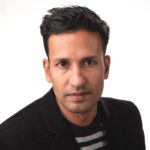 Prof. Dr. Sarthak Misra of the University of Twente and University Medical Center Groningen has been awarded an ERC Proof of Concept grant titled – RAMSES (Robust Actuation through Magnetism for Safe Endovascular Surgery). It is Prof. Misra’s fourth ERC grant. RAMSES follows from the results of his ERC Starting grant ROBOTAR. Within RAMSES, the researchers from the Surgical Robotics Laboratory (SRL) will develop a system for magnetically-actuated robotic surgery.
Prof. Dr. Sarthak Misra of the University of Twente and University Medical Center Groningen has been awarded an ERC Proof of Concept grant titled – RAMSES (Robust Actuation through Magnetism for Safe Endovascular Surgery). It is Prof. Misra’s fourth ERC grant. RAMSES follows from the results of his ERC Starting grant ROBOTAR. Within RAMSES, the researchers from the Surgical Robotics Laboratory (SRL) will develop a system for magnetically-actuated robotic surgery.
Additional information regarding RAMSES is available here.
The 2021 IEEE/ASME International Conference on Advanced Intelligent Mechatronics (AIM 2021) will be fully virtual and held on July 12-16, 2021. The motto will be “sustainable mechatronics”.
As a flagship conference focusing on mechatronics and intelligent systems, the AIM 2021 will bring together an international community of experts to discuss the state of the art, new research results, perspectives of future developments, and innovative applications relevant to mechatronics, robotics, automation, industrial electronics, and related areas, not limited to the conference motto.
Important Dates
Submission of Special & Invited Session Proposals: 12 Feb 2021
Submission of Tutorial & Workshop Proposals: 22 Feb 2021
Submission of AIM Contributed & Invited Papers: 22 Feb 2021
Submission of Accepted TMECH Papers: 1 May 2021
Notification of AIM Paper Acceptance: 1 May 2021
Final Paper Submission AIM 2021: 15 May 2021
Contact: aim2021@aim2021.org
Conference website: https://aim2021.org
The Marie Skłodowska-Curie European Training Network – EvoGamesPlus (Evolutionary games and population dynamics: from theory to applications) invites applications for 15 early-stage researcher (ESR) / PhD positions, available with a starting date in the period July 2021 – September 2021. The appointments will be on a full-time, fixed term employment contract basis for a duration of 36 months.
For more a list of the available positions click here
Delft University of Technology
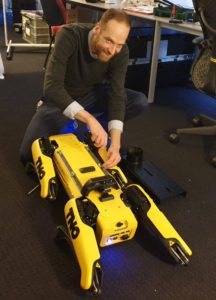 Name: Joris Sijs
Name: Joris Sijs
Function: Researcher
Starting date: 01-01-2021
Group: CoR
Email: joris.sijs@tno.nl
My name is Joris Sijs, a part-time staff member with the LAC-group where I will be working for one day a week. For the other four days I hold a position at TNO in Den Haag, which has been my main employer for the last 13 years.
My research involves the engineering of AI-based systems, with a special focus on the knowledge-base of such systems. This means that I typically create robotic systems by making use of methods in state-estimation, text-recognition, image-recognition, automated planning and control and develop a proper interaction of those modules with a central knowledge-base that is implemented according to an ontology that I also like to develop (in addition to CORA etc.). The research topics that I conduct with this approach are semantic navigation, self-assessment and autonomous systems. The integration of the robotic-hardware is something I generally buy in kits, as drones, or in a complete package as the Spot robot from Boston Dynamics or the Light-Underwater-Autonomous-Vehicle from OceanScan.
Related to that I like to program parts of those robotic systems as well: in ROS2 and Python (with a Matlab background) on simulators as Gazebo or on hardware as the Raspberry PI, AAEON-UP, Coral TPU and so on. Because of that, another personal interest is neuromorphic hardware, for which I had the pleasure to actually develop on hardware as the Neuroshield and the memristors from Knowm. Other personal hobbies are to create pieces of furniture and electronic equipment, as a tube-amp, or have fun with my vinyl-records on my turntables and mixer.
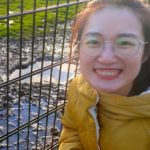 Name: Yujie Tang
Name: Yujie Tang
Function: PhD student
Starting date: 01-01-2021
Supervisor: Wei Pan
Group: CoR
Email: Y.Tang-6@tudelft.nl
Project: Safe reinforcement learning based robot navigation
My name is Yujie Tang. My friends usually call me Yujie. While lots of people may be confused about the pronunciation, then you can call me Tang for simplification.
I am from another side of Eurasia. I was born in Shanghai, which is a city in east China. And I obtained my bachelor’s and master’s degree in Shanghai University respectively in 2017and 2020.
I joined the Shanghai Key Laboratory of Intelligent Manufacturing and Roboticsin2016. After that, I pursued my master’s project “Autonomous exploration and reconstruction in rough terrain” under the supervision of Prof. Yangmin Xie. I worked on multi-sensor Fusion based localization, 3D terrain mapping and autonomous navigation. That was a precious experience and made me determined to further my study.
In January 1st, I’m going to start my PhD program in CoR with the supervision of Professor Wei Pan. My research topic would be “Safe reinforcement learning based robot navigation”. I will continue my research on autonomous navigation, but would put more focus on the reinforcement learning and Bayesian inference methods to improve the performance.
In my free time, I usually cook, watch movies and have dinner with friends. It is also a good choice to have a relaxing cycling trip at weekends in the Netherlands. I am not keen on sports, but I would go running, practice yoga or play badminton from time to time to keep fit.
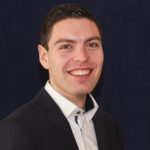 Name: Dennis Benders
Name: Dennis Benders
Function: PhD student
Starting date: 01-01-2021
Supervisors: Laura Ferranti, Javier Alonso-Mora and Robert Babuska
Group: CoR
Email: D.Benders@tudelft.nl
Project: Robust and fault-tolerant control of a team of drones
My name is Dennis Benders and I’m 23 years old. My hobbies include playing korfball, ice skating and making music (singing, playing cajon and guitar). My academic background consists of the bachelor Electrical Engineering and the master Embedded Systems with Systems and Control specialization. Recently, I finished my master thesis about quadrotor state estimation using a brain-inspired perception theory, called Dynamic Expectation Maximization, under the supervision of Martijn Wisse and Ajith Anil Meera (working in the Robot Dynamics group).
As of January 4, I will be a PhD student in the Learning and autonomous control group. During the PhD, I will be working on robust and fault-tolerant control of a team of drones. My supervisors are Laura Ferranti, Javier Alonso-Mora and Robert Babuska and I will closely collaborate with PhD student Max Lodel.
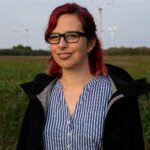 Name: Eva Memmel
Name: Eva Memmel
Function: PhD student
Starting date: 01-01-2021
Group: DCSC
Email: e.m.memmel@tudelft.nl
I am Eva. I am currently finishing my Master’s degree at TU Berlin in Engineering Science. From January on, I will be working at the Delft Tensor AI Lab for the next five years on learning nonlinear dynamics from uncertain data with tensors and on developing learning materials for tensor based methods.
Next to my studies I was an active member of the Formula Student Team of the TU Berlin and I was working as a student teaching assistant at the institute of mechanics.
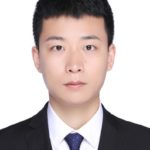 Name: Xiaoyu Liu
Name: Xiaoyu Liu
Function: PhD student
Starting date: 01-01-2021
Group: DCSC
Email: X.Liu-20@tudelft.nl
Hi! I am Xiaoyu Liu, and I am currently a Ph.D. candidate at the Delft Center for Systems and Control, Delft University of Technology.
I received B.S. and M.S. degree from Beijing Jiaotong University in 2017 and 2020, respectively. My research interests include distributed control, hybrid systems, and intelligent railway transportation systems.
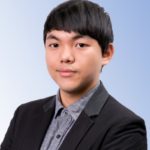 Name: Yu-Chen Lee
Name: Yu-Chen Lee
Function: PhD student
Starting date: 01-10-2020
Group: DCSC
Supervisor: Sander Wahls
Email: Y.C.Lee-2@tudelft.nl
I’m Yu-Chen Lee, a new PhD student supervised by Sander Wahls. I come from Taiwan and finished my master in Sections of Ocean Engineering, Department of Hydraulic and Ocean Engineering, National Cheng Kung University, Taiwan. My master thesis focused on ocean wave data analysis and oceanographic observation technique. I have several short-term research exchange in China, Japan and Germany.
At Delft, I am working on applying Nonlinear Fourier transform for ocean wave data. Nonlinear Fourier transform (NFT) commonly refers to a family of transforms that decompose a time-domain signal into nonlinearly interacting waves. We use this method in order to detect the nonlinearity of waves in the real ocean. If you are interested with my research and want to have more connection or cooperation, free to get in touch with me.
In my free time, I usually relax by playing the board games, badminton and having dinner with friends. I’m super excited to work in this big team and looking forward to meeting every colleague in the future.’’
Eindhoven University of Technology
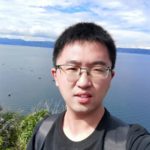 Name: Ming Li
Name: Ming Li
Function: PhD student
Starting date: 01-12-2020
Supervisor: Dr. Zhiyong Sun
Group: Control Systems
Project: Resilient and secure coordination in networked multi-robot systems
Email: m.li3@tue.nl
Hi everyone! My name is Ming Li and I just joined the CS group at the Eindhoven University of Technology as a Ph.D. Candidate for the project: Resilient and secure coordination in networked multi-robot systems, and under the supervision of Dr. Zhiyong Sun.
 Name: Victor Daniel Reyes Dreke
Name: Victor Daniel Reyes Dreke
Starting date: 16-12-2020
Function: PhD student
Email: v.d.reyes.dreke@tue.nl
Group: Control Systems
Supervisor: Prof. Mircea Lazar
Project: NEON (New Energy and mobility Outlook for the Netherlands)
I am an engineer with a degree in Automation and Control. I was born and raised in Cuba. I did my master’s degree at the University of Sao Paulo, Brazil. During this time, I focused my research on model validation for model predictive control applications. Since starting my master’s degree, I have developed a growing interest in Predictive model control, control theory, system identification, and machine learning. Therefore, one of my personal goals for my doctoral work is to combine ideas from these areas of expertise to develop new control methods. Apart from my job, I am very interested in travelling and practising different sports, mainly soccer.
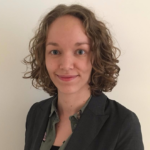 Name: Stefanie Fonken
Name: Stefanie Fonken
Starting date: 11-01-2021
Function: PhD student
Email: s.j.m.fonken@tue.nl
Group: Control Systems
Supervisor: Paul Van Den Hof
Project: Application of algorithms for network identification
My name is Stefanie Fonken, I completed my MSc Systems and Control (cum laude) at Eindhoven University of Technology within the Control Systems group. Recently I joined the Eindhoven University of Technology as PhD student where I will focus on algorithms for network identification. I will look into applications on smart power grids and how to handle sensor noise. Prior to my MSc I have worked at Bosch Transmission Technology for 3 years as Machine Engineer, and received my BSc Mechatronics from Fontys University of Applied Sciences in Eindhoven. Apart from academics my passions are good food, diving, climbing, traveling, music (bass guitar) and 3d printing.
University of Groningen
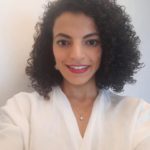 Name: Asala Mahajna
Name: Asala Mahajna
Function: PhD student
Email: A.mahajna@RUG.nl
Group: Mechatronics and Control of Non-linear Systems
Supervisor: prof. dr. ir. B. (Bayu) Jayawardhana & prof. dr. G.J.W. (Gert-Jan) Euverink
Project: Machine learning approach for metagenomic data interpretation in water process control
Asala is a PhD candidate working on the use of a machine learning approach for metagenomic data interpretation in water process control at Wetsus: the European centre of excellence for sustainable water technology and Groningen University. Previously, Asala worked as a hydraulic engineering adviser for industry and infrastructure at Deltares. She has developed and conceptually validated a model-based leakage detection application for water distribution systems using swarm optimization. Asala has an international professional experience and worked on projects in Europe, The Middle East and Africa. She has experience in energy, water, and environmental policy-making at the US Senate, and transboundary environmental engagement and water management under USAID, SIMA and UN-funded projects.
 Name: Zhiyuan Liu
Name: Zhiyuan Liu
Function: PhD student
Starting date: 01-01-2021
Email: z.liu@rug.nl
Group: Discrete Technology & Production Automation (DTPA)
Supervisor: Prof. Ming Cao and Prof. Jacquelien Scherpen
Project: Multi-agent formation control utilizing tensegrity frameworks
Hello everyone! My name is Liu Zhiyuan and I just joined the DTPA group as a PhD candidate under the funding from China Scholarship Council (CSC). I received my B.E. degree and M.E. degree from Harbin Institute of Technology, China. Now my research direction lies in multi-agent formation control, and more specifically I’ll focus on systems utilizing tensegrity frameworks.
University of Twente
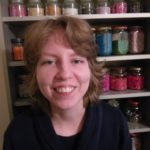 Name: Anouk Pelzer
Name: Anouk Pelzer
Starting date: 01-01-2021
Function: PhD
Email: a.f.g.pelzer@utwente.nl
Group: Hybrid Systems
Supervisor: Felix Schwenninger (daily supervisor), Hans Zwart (promotor)
Project: Predictive Avatar Control and Feedback (PACOF)
I have completed my bachelor and master in mathematics at the University
of Groningen. Now I work as a PhD student on the project PACOF that collaborates
interdisciplinary with robotics and computer science.
Eindhoven University of Technology
Candidate: Enzo Evers
Group: CST
Thesis: Identification and active thermomechanical control in precision mechatronics
Promotores: dr.ir. T.A.E. Oomen & dr.ir. A.G. de Jager
Date: 07-01-2021
Candidate: J.A.W. van Pinxteren
Group: CST
Thesis: Novel mechatronic architectures for interventional X-ray systems
Promotores: prof. J.M.P.B. Vermeulen & prof. M. Steinbuch
Date: 27-01-2021
University of Twente
Candidate: Ramy Rashad
Group: RaM
Thesis: Energy-based modeling and control of interactive aerial robots: A geometric port-hamiltonian approach
Promotores: prof. Stefano Stramigioli and dr. Frederic P. Schuller
Date: 21-01-2021
The next issue of this Newsletter will appear in February 2021. We encourage the contributors to provide newsworthy information. In principle, we intend to publish any message offered. However, we reserve the right to edit certain parts of a submission.
Please send your contributions to: m.w.otte@tudelft.nl
You receive this newsletter because you are a member of DISC. If you want to be removed from the mailing list, please let us know by sending an email to m.w.otte@tudelft.nl